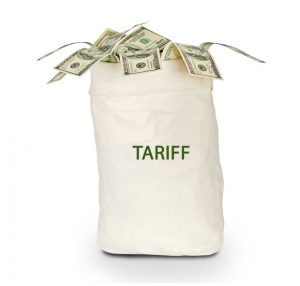This Morning in Metals: Coalition of American Metal Manufacturers and Users calls for end to Section 232 tariffs
This morning in metals news: the Coalition of American Metal Manufacturers and Users called on the Biden administration to rescind the Section 232 steel and aluminum tariffs; meanwhile, the Energy Information Administration forecasts US energy-related CO2 emissions to rise after the mid-2030s; and, lastly, US President Joe Biden spoke this week with Chinese President Xi Jinping.
CAMMU urges Biden to ends Section 232 tariffs
The Coalition of American Metal Manufacturers and Users (CAMMU) sent President Joe Biden a letter Wednesday urging him remove the Section 232 tariffs on steel and aluminum.
In 2018, former President Donald Trump imposed the tariffs of 25% for steel and 10% for aluminum.
“By taking action to terminate the Trump tariffs, your Administration can prevent U.S. manufacturers from shutting down production lines, laying off workers, and potentially even closing their doors,” CAMMU said in the letter. “By contrast, the ripple effects of allowing these Section 232 tariffs to remain are substantial. Our member companies report not only record steel prices, but also delivery times stretching 12-16 weeks, causing significant disruptions.”
As we noted previously, however, Biden reversed Trump’s decision to rescind the tariff on aluminum from the UAE (a move he made on his final day in office).
See why technical analysis is a superior forecasting methodology over fundamental analysis and why it matters for your aluminum buy.
Energy-related CO2 emissions to rise after mid-2030s
Meanwhile, the Energy Information Administration reported US energy-related carbon dioxide emissions are forecast to rise after the mid-2030s.
By 2050, those emissions levels will be about 5% higher than in 2020, the EIA reported.
“EIA projects that U.S. energy-related CO2 emissions will increase in the latter years of the projection as a result of increasing economic growth that leads to growing industrial energy requirements,” the EIA added. “EIA projects energy use in transportation will increase as vehicle fuel efficiency plateaus in the mid-2020s and becomes outweighed by increases in vehicle travel demand.”
Biden, Xi speak
The White House released a statement indicating President Joe Biden and Chinese President Xi Jinping spoke this week.
According to the readout of the call, Biden offered his well wishes to the Chinese people ahead of the Lunar New Year, which falls on Friday, Feb. 12.
However, the call also covered several sources of tension between the two countries.
“President Biden affirmed his priorities of protecting the American people’s security, prosperity, health, and way of life, and preserving a free and open Indo-Pacific,” the readout continued. “President Biden underscored his fundamental concerns about Beijing’s coercive and unfair economic practices, crackdown in Hong Kong, human rights abuses in Xinjiang, and increasingly assertive actions in the region, including toward Taiwan.”
Volatility is the name of the game. Do you have a steel buying strategy that can handle the ups and downs?



Leave a Reply